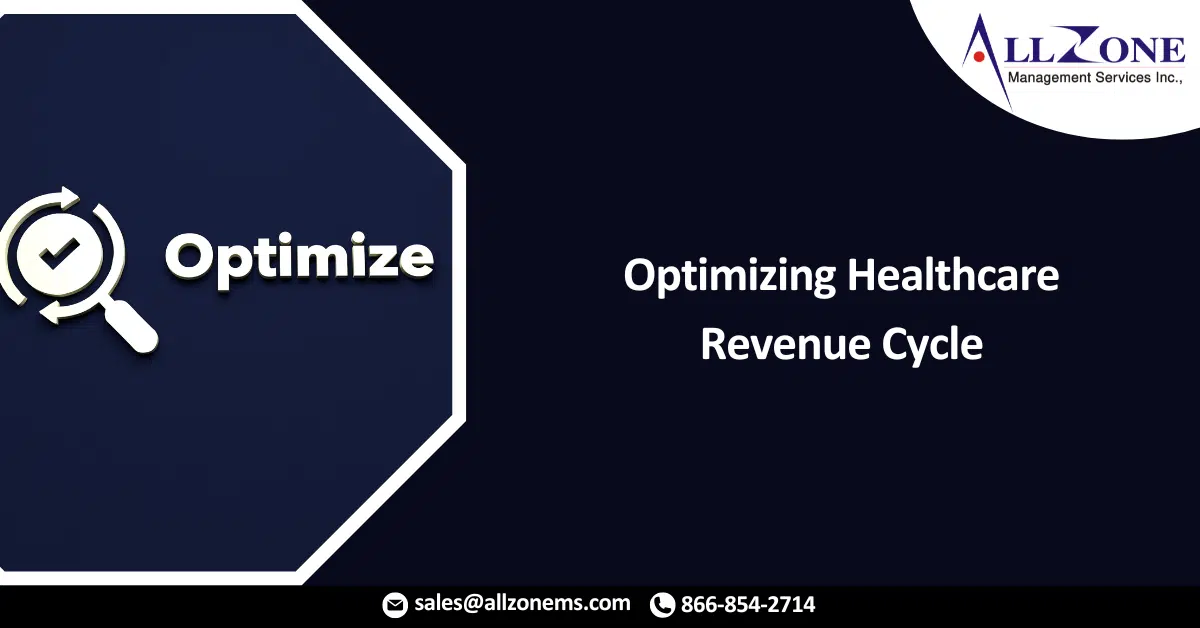Interoperability standards and AI wield significant influence over the revenue cycle, holding the potential to transform the financial landscape of healthcare establishments.
In the constantly evolving realm of healthcare, the infusion of artificial intelligence (AI) has emerged as a game-changing force, promising to revolutionize patient care, diagnoses, and treatments. However, to fully harness the power of AI in healthcare, it is imperative to establish interoperability standards. These standards not only enable smooth integration and secure exchange of data but also play a critical role in optimizing the revenue cycle in healthcare. The impact of interoperability standards and AI on the revenue cycle is profound, with the ability to reshape the financial framework of healthcare institutions.
To fully realize this potential, policymakers must take an active role in shaping the regulatory landscape to endorse the meaningful adoption of interoperability standards and AI-driven technologies. In doing so, they can ensure that healthcare institutions thrive in an era of unprecedented change and opportunity, paving the way for a financially sustainable future where technological advancements and financial expertise seamlessly converge to enhance patient care and drive financial prosperity.
Effortless incorporation and fine-tuning of the revenue cycle
Interoperability standards play a pivotal role in enabling the smooth integration of AI solutions into existing healthcare workflows. In a multifaceted ecosystem where different software and hardware systems coexist, healthcare providers greatly benefit from the assurance that diverse AI applications can work together seamlessly. This integration ensures that AI-driven tools effortlessly become part of the healthcare professional’s toolkit, augmenting their capacity to provide exceptional care while streamlining the revenue cycle.
The revenue cycle encompasses the entire spectrum of healthcare billing, spanning from patient registration and insurance verification to claims processing and payment collection. Through the incorporation of interoperable AI solutions, providers can automate and enhance various stages of this cycle. For example, AI-powered tools can refine coding accuracy, diminish claim denials, and enhance billing efficiency, ultimately leading to both accelerated reimbursements and revenue expansion.
Fostering data interchange and facilitating informed financial choices
At the core of effective healthcare delivery lies the accessibility of precise and timely patient data. Interoperability standards play a crucial role in facilitating the secure exchange of patient information among different healthcare systems, ensuring providers have a comprehensive view of a patient’s medical history. This data-driven approach leads to more precise diagnoses and individualized treatment plans, ultimately resulting in improved patient outcomes.
From a revenue cycle standpoint, comprehensive patient financial data is equally invaluable. It enables providers to submit accurate claims, reducing the likelihood of denials and delays in reimbursement within a highly intricate system. Additionally, interoperable AI solutions can scrutinize patient data to pinpoint potential coverage gaps or eligibility issues, empowering providers to proactively address billing concerns and enhance revenue capture early on.
Adherence to regulatory norms: Protecting revenue and patient data
The healthcare industry operates under rigorous regulations, particularly concerning data privacy and security. Interoperability standards serve as a crucial mechanism to ensure that AI solutions meet these regulatory demands. Adhering to standards such as HIPAA (Health Insurance Portability and Accountability Act) is essential in safeguarding both patient information and the financial integrity of healthcare institutions.
Conversely, failing to comply with regulatory standards can lead to substantial financial penalties and damage to reputation. Interoperable AI solutions that assist institutions and revenue cycle teams in adhering to these standards provide a secure framework for data exchange and analysis. This instills confidence in providers to embrace cutting-edge technologies while upholding compliance.
Scalability: Efficiently Addressing Increasing Demands
Interoperability standards play a crucial role in facilitating the efficient scaling of AI systems. When various technological elements can communicate seamlessly, it simplifies the deployment and management of large-scale AI solutions. In a healthcare environment marked by evolving patient demands and advancing technologies, scalability is a pivotal factor for sustained success.
From a revenue cycle viewpoint, scalable AI solutions empower providers to manage rising patient volumes without sacrificing billing accuracy or efficiency. This flexibility guarantees that revenue cycle processes stay robust even in the midst of expansion, bolstering the financial sustainability of healthcare institutions.
Cultivating Cooperation and Innovation for Financial Advancement
Interoperability standards establish a collaborative environment that encourages researchers, clinicians, and technologists to work together. This fosters the development of new AI algorithms, diagnostic tools, and treatment methodologies. By collaborating within a standardized framework, stakeholders in the healthcare ecosystem can accelerate the pace of innovation.
From a revenue cycle perspective, this collaborative approach holds enormous potential. Innovations in AI-driven revenue cycle management solutions can lead to breakthroughs in areas such as claims processing, denial management, and patient financial engagement. These advancements have the potential to significantly improve revenue capture and financial performance. With more predictable revenue cycle activities, healthcare organizations can make more informed decisions regarding clinical research, improvements, and patient care.
Creating a foundation for a financially viable future
AI, operating under stringent interoperability standards, stands as a transformative catalyst in healthcare, bearing significant implications for the revenue cycle. Through seamless integration of AI solutions and the facilitation of secure data exchange, providers can fine-tune revenue cycle processes, resulting in enhanced financial performance. Embracing interoperability standards and AI-driven technologies isn’t merely a strategic option; it is imperative for financial viability. By leveraging the potential of interoperability and AI, healthcare institutions can establish a groundwork for a future where financial stability harmonizes seamlessly with optimal patient care. This fusion of technological advancement and financial expertise possesses the potential to reshape the healthcare landscape positively, ensuring providers thrive in an era of unprecedented change and opportunity.
Furthermore, adherence to regulatory standards ensures the protection of both patient data and financial assets. It is imperative for regulatory bodies to delineate clear guidelines concerning the adoption and integration of interoperable AI solutions. This encompasses defining interoperability prerequisites, establishing data exchange protocols, and mandating adherence to industry norms. Additionally, policymakers must foster collaboration between technology providers and healthcare institutions to guarantee that interoperable solutions align with the distinct needs and workflows of various healthcare settings.

